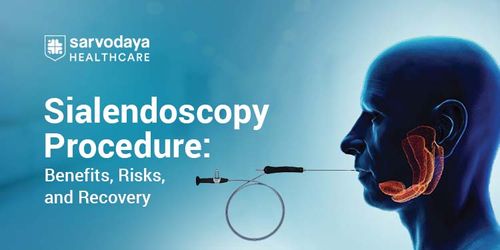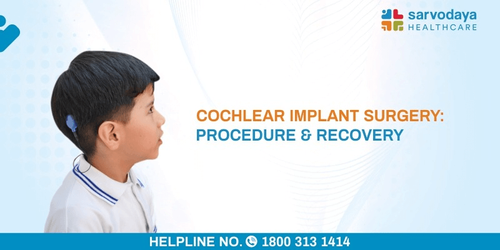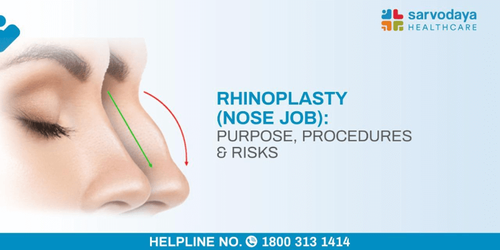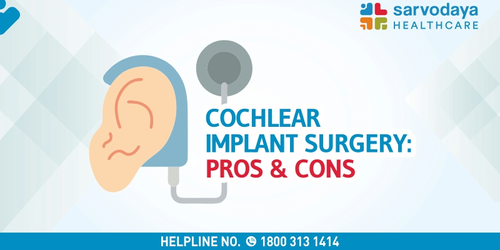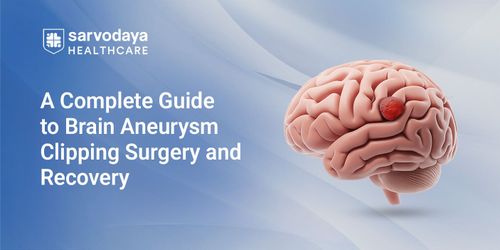Feeling that the world around you is spinning can be disorienting and scary. This sensation is called vertigo and can interfere with one’s ability to walk, drive or even carry out daily chores. Although some people treat vertigo as yet another dizzy spell, there are times when it might be a symptom of serious health issues requiring medical attention.
In this blog, we discuss its various types, vertigo causes and how to identify symptoms and manage them.
Understanding Vertigo and Why It Happens
Vertigo is not just a feeling of dizziness. It is a specific health disorder characterised by a sensation of spinning or movement, even when standing still.
The sensation is usually caused by the imbalances in the vestibular system, a section of the inner ear and brain that controls balance and spatial awareness. There is no single reason for vertigo, and several different factors may cause it.
Common causes of vertigo include:
- Inner ear infections or inflammation of the ear
- Head trauma or injuries
- Migraine headaches
- Low blood pressure or circulation issues
- Dehydration or overheating
- Panic disorders or anxiety
- Certain medications affecting the inner ear or brain activity
Common Types of Vertigo
There are different types of vertigo, each with its causes and symptoms. It is critical to identify the type to treat it successfully.
Major types of vertigo include:
- Benign Positional Paroxysmal Vertigo (BPPV): It is frequently triggered by small calcium crystals that get stuck inside the canals of the inner ear, causing temporary spinning episodes. Benign positional vertigo typically gets triggered when there are specific movements like rolling over in bed or tilting the head back.
- Migraine-Associated Vertigo: This type is associated with migraine disorders and can occur with or without a headache. It often causes sensitivity to light and sound and can last from a few minutes to a number of hours.
- Cervical Vertigo: It is associated with stiffness of the neck or injury, and it happens because of improper signal exchange between the neck and the brain. It may lead to a feeling of imbalance, particularly after sudden neck movements.
- Peripheral Vertigo: It begins in the inner ear and tends to be less serious than central vertigo. BPPV, Meniere’s disease and vestibular neuritis fall in this category.
- Central Vertigo: It is caused by neurological problems like multiple sclerosis or strokes. This type can be more severe and usually requires specialised neurologic care.
Recognising the Symptoms of Vertigo
The symptoms of vertigo can range from minor discomfort to debilitating sensations that disrupt daily activities.
The major symptoms of vertigo are:
- A spinning or tilting feeling, even when still
- Vomiting or nausea
- Inability to concentrate or blurred vision
- Loss of balance or coordination loss
- Headache or a feeling of pressure in the head
- Tinnitus, or ringing in the ear
- Sweating or paleness
- Sudden eye jerking (nystagmus)
Causes of Vertigo
Vertigo can be caused by a number of medical conditions, and each condition affects the viable treatment options that can be used to provide relief. Understanding the cause of vertigo can help you and your physician determine the best course of action.
Here are some well-known causes of vertigo:
- BPPV (Benign Positional Paroxysmal Vertigo): It is caused by calcium particles displaced in the inner ear. It causes short and intense spinning episodes when you move your head in certain directions.
- Meniere’s Disease: A chronic disorder which leads to the accumulation of fluids in the ear. It is usually associated with hearing loss, tinnitus and prolonged vertigo episodes.
- Vestibular Neuritis or Labyrinthitis: Inflammation of the vestibular nerve caused by viral infections that may result in vertigo occurring suddenly for prolonged periods.
- Migraine-Associated Vertigo: A person can suffer vertigo as a neurological symptom, even without the usual migraine headache.
- Cervical Vertigo: Commonly linked to poor posture or neck injuries, it is a result of improper blood flow or nerve signals due to cervical spine issues.
- Certain Medications: Antibiotics, antidepressants, or anticonvulsants may cause an imbalance in the inner ear and act as a vertigo cause.
- Circulatory Disorders: Reduced blood flow to the brain, sometimes referred to as vertigo veins by patients, can cause lightheadedness and imbalance.
Treatment and Management of Vertigo
The treatment recommended ranges from simple physical exercises to medication, or even a long-term lifestyle change, depending on its root cause. Whether your symptoms are due to positional vertigo, migraine-associated vertigo, or inner ear infections, early intervention is the key.
Here are some commonly recommended ways of treating and managing vertigo:
- Repositioning Manoeuvres: Epley and Semont manoeuvres are effective techniques to reposition calcium particles in the ear canal for those with benign positional vertigo.
- Vestibular Rehabilitation Therapy (VRT): A type of physical therapy that helps in strengthening the vestibular system, especially useful for peripheral vertigo or post-infection cases.
- Medications: Based on the vertigo cause, medications such as antihistamines, anti-nausea drugs or steroids may be prescribed. Migraine control medications are useful for migraine-associated vertigo.
- Lifestyle Modifications: Managing salt intake (in Meniere’s), staying hydrated, and improving neck posture for cervical vertigo help with the recovery process.
- Counselling and Relaxation Techniques: Vertigo attacks caused by anxiety and panic can be successfully treated with psychological support and relaxation training.
- Surgical Options (rare): Only used in extreme cases that are non-responsive, like chronic Meniere’s disease.
Conclusion
Acute vertigo is frustrating and scary to live with. However, by understanding that there are different types, causes, and treatment options, patients can make an informed choice and regain control of their lives.
At Sarvodaya Hospital, Faridabad, patients suffering from vertigo are provided advanced, holistic care under the supervision of the best doctors for vertigo treatment in Faridabad. The hospital is equipped with the latest diagnostic equipment and state-of-the-art vestibular rehabilitation support. The hospital ensures that every patient is provided with personalised care.
If you or your loved one is looking for expert care, Sarvodaya is recognised as a trusted ENT Hospital in Faridabad, also catering to patients across regions as a top ENT Hospital in Delhi NCR. Our team includes the Best ENT Specialist in Faridabad and is also counted among the Best ENT Specialist in Delhi NCR, offering compassionate and comprehensive treatment for all ENT concerns.
If you or your family member is suffering from vertigo, book an appointment at Sarvodaya today and start your journey to recovery.












